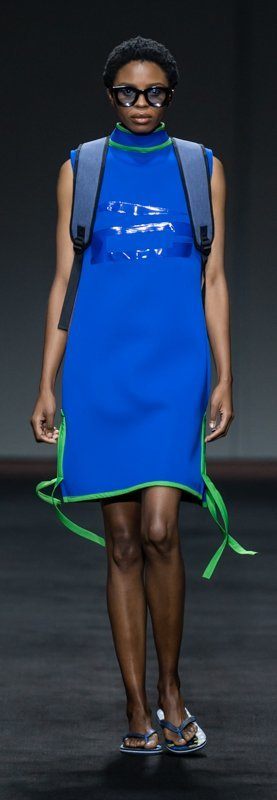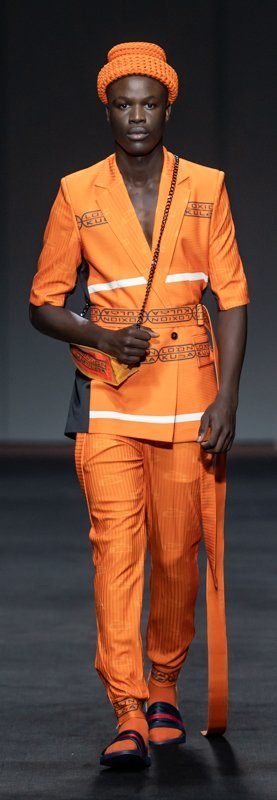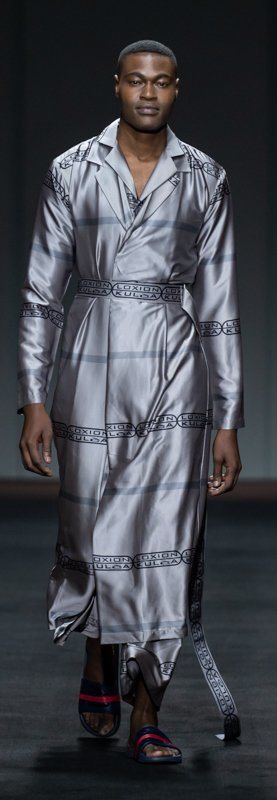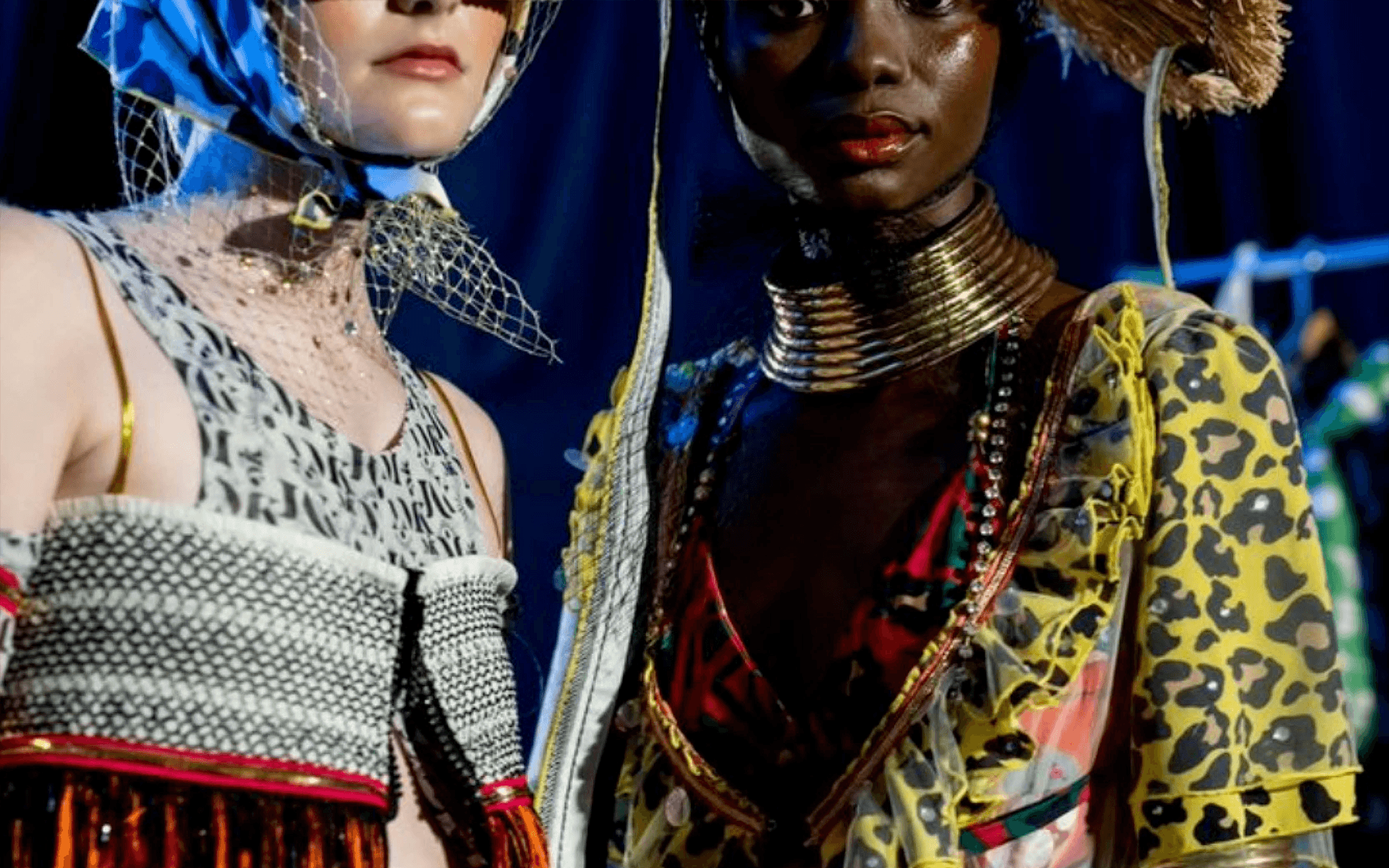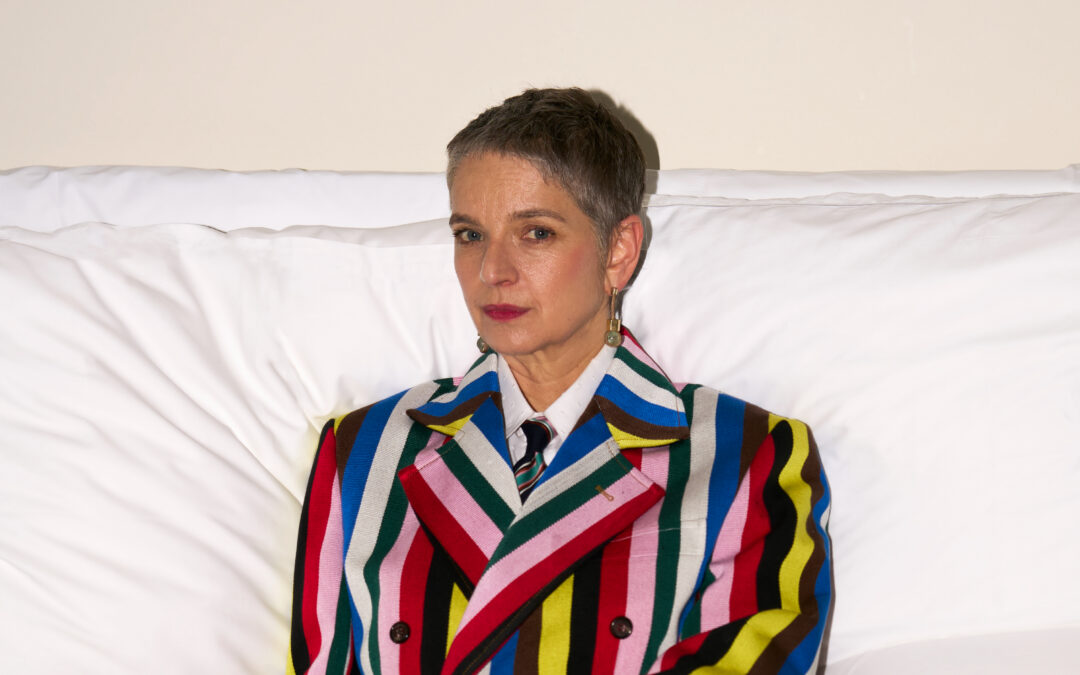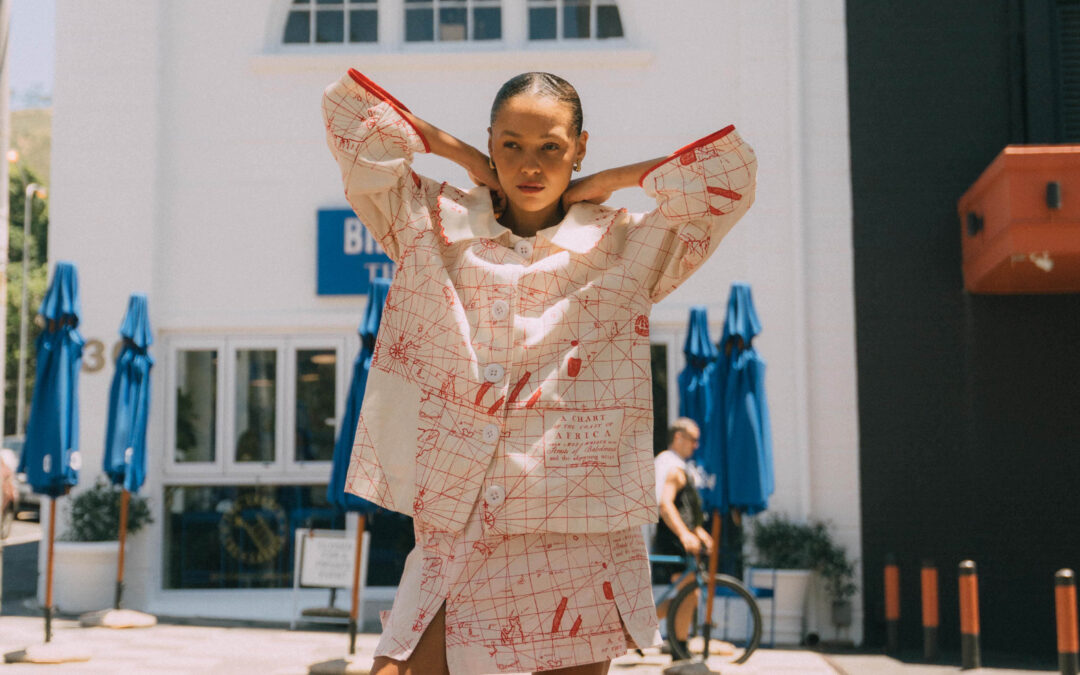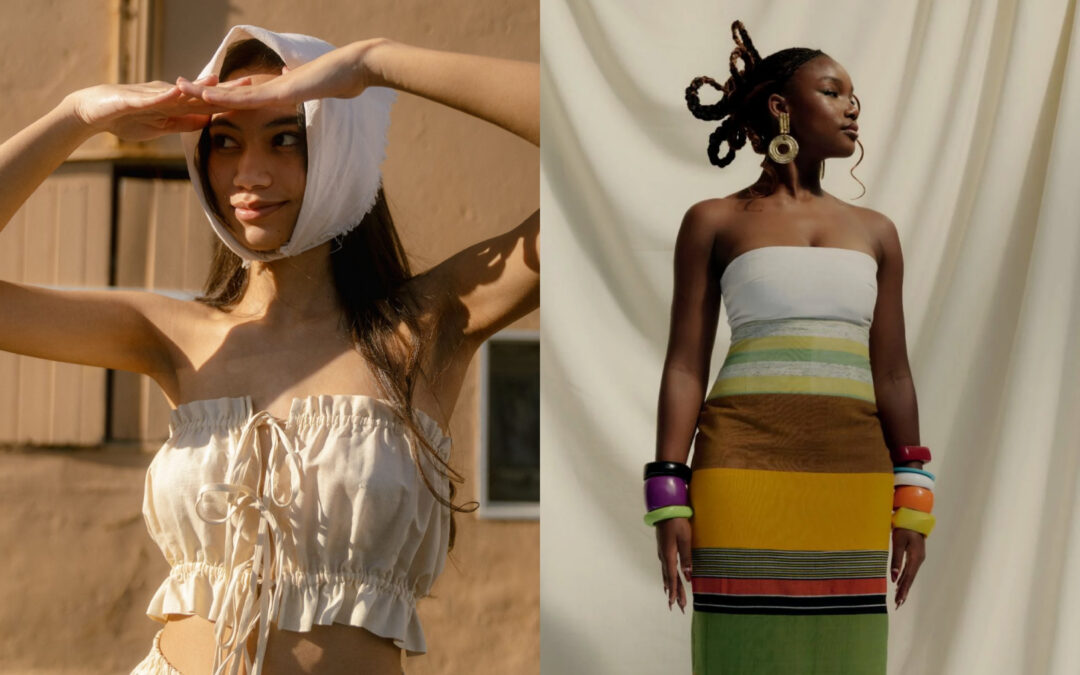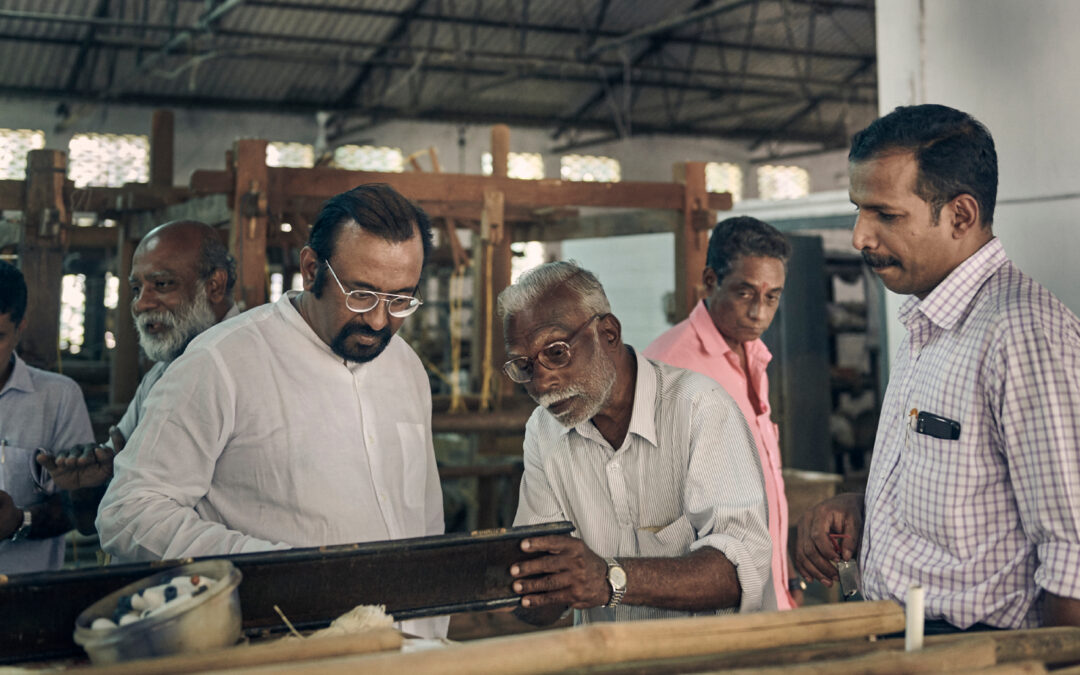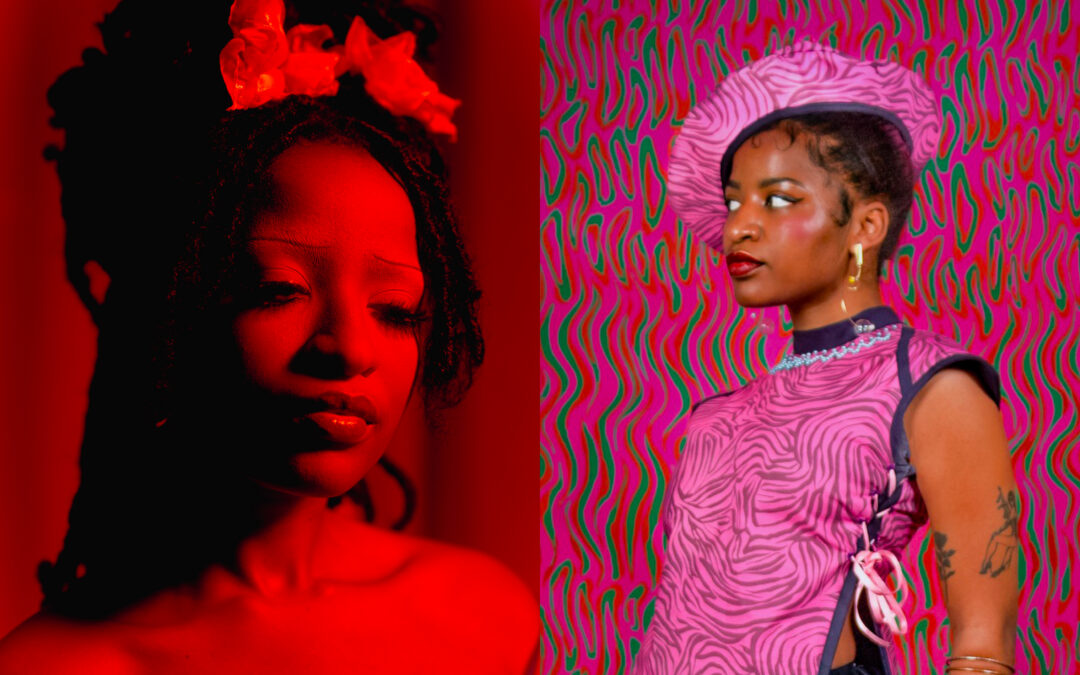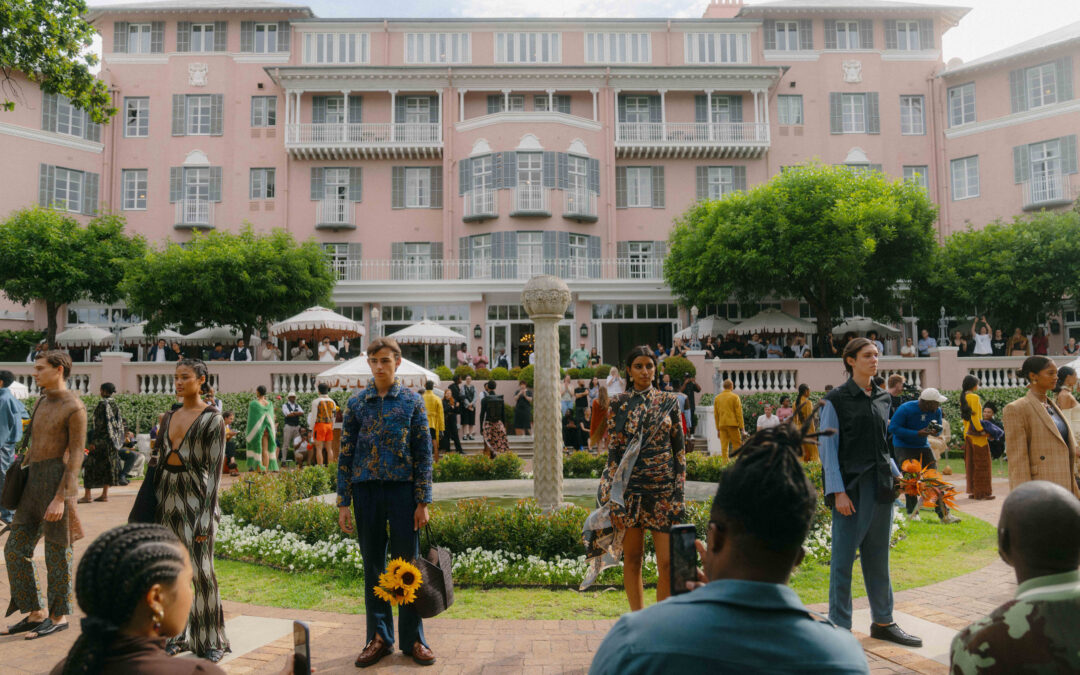It has been a strange time in fashion. After some years of a global pandemic with immeasurable constraints placed on every industry – fashion as a space saw its reliance on tactility wholly challenged, with fashion week’s around the world quickly shifting towards digital format for their showcases – sans front rows, and released for the world to see in real time via platforms such as Instagram. This moment has also featured a deepening inquiry around the purpose of fashion in our lives – with major brands like Balenciaga going totally rogue with their marketing, coaxing us into a sort of social experiment of what people are willing to pay for the association to a name, while new designers were born from the confines of their homes during lockdowns, to the uptick of upcycling as a solution to fabric waste and the overwhelming ecological, social distress fashion production continues to put on the planet. In South Africa, the last few years have been intense – yet marked, also, by exceptional wins for our luxury designers such as Sindiso Khumalo’s win at the 2020 LVMH prize, and last year with Lukhanyo Mdingi’s win. Our recognition on the international stage is an important one; opening up a wider market, a strong sense of accessibility and providing encouragement for emerging talent here in South Africa. South African Fashion Week, then, continues to remain absolutely essential for our sartorial landscape; being the foundation upon which designer’s gain the experience of showcasing, while offering a succinct view of each year’s design talent.
In 1997, South Africa was steadily opening up to the world after our democratisation, and it was in this year that fashion polymath (and legend) Lucilla Booyzen launched the first South African Fashion Week – the first of its kind to centralise the conversation and expression of design in the country. Held every year in Johannesburg, the 25th year of SAFW took place in April, hosted at Mall of Africa, with MAC as official makeup sponsors, Carlton Hair as official hair sponsors alongside Oppo as official mobile sponsors and Cruz Vodka as venue sponsors. Within South Africa’s fashion ecosystem, ethical production and sustainable thinking are almost inherent, and these necessary, value-driven sentiments have been woven into the South African Fashion Week’s mantra; The Business of Ethical Fashion. Within the SAFW structure, their role in discovering in emerging designers is seen through the co-occurring initiative the New Talent Search – with this years finalists being Thando Ntuli of Munkus, Nicole Smith of Ipikoko, Mikhile Du Plessis of MeKay Designs, Calvin Lunga Cebekhulu of Czene.24, Sanelisiwe Gcabashe of Gjenelo Couture and Mimangaliso Ndiko of Sixx6.
With an exciting three day showcase featuring established and emerging designers, South African Fashion Week’s website has taken on a clean, navigable form – robust with information, imagery and videos – and details a very important co-existence of digital and physical viewership. We applaud all the designers who showed, and have compiled a brief recap of our highlights, while encouraging that one checks out all the exceptional designers of SAFW.
Day 1 ///
Munkus (New Talent Search winner)
“MUNKUS, founded in 2019, by Thando Ntuli, is a contemporary, colourful, trans-seasonal brand. It has 80’s and 90’s South African fashion influence with classic silhouettes to create a retro intergenerational style. Ntuli’s inspirations are rooted within intergenerational history. MUNKUS comes alive within the streets of Soweto and Gugulethu.”
Across a colour palette of fern green and crimson held by the monochromatic temperament of black and white, Munkus was a showcase of exceptional structure; with ballooning silhouettes of both sleeves and skirts contrasted against layering across each look. After seeing this collection, we are certain Thando Ntuli’s pattern and draping abilities are immeasurable – and noting, in particular, her ability to challenge the perception of form with angular bias cuts, ruffled hems and the insert of puffed elements across bodices.
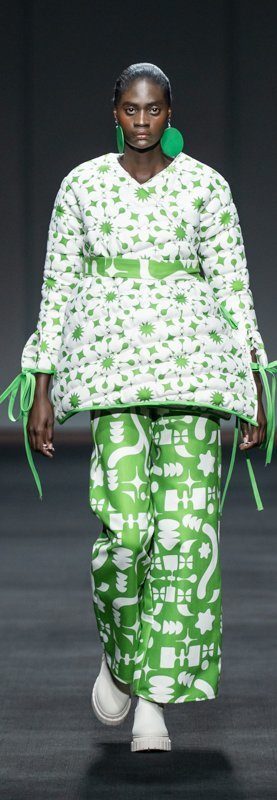
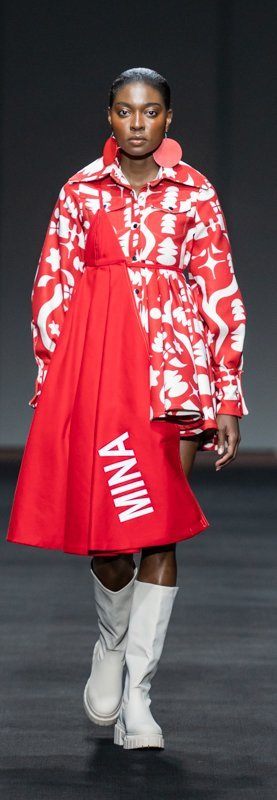
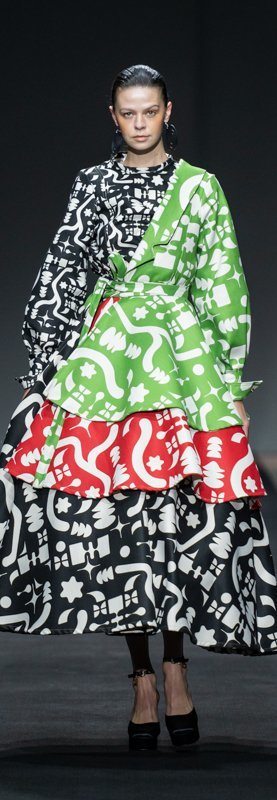
MeKay Designs (New Talent Search finalist)
“Mikhile du Plessis is the name behind MeKay Designs. ‘We strive to create a lifestyle of creativity and to add reason to the quality of life through our designs,’ says Mikhile. The brand has a sense of ‘fast-fashion’ in terms of keeping up with trends and is ready-to-wear but has a strong sustainability process by using organic fabrics, working in a minimal waste environment, and redesigning new items from old garments.”
For her runway debut, Mikhile Du Plessis showcased a vivid maximalism – with elements of denim, amber velvets and animal prints. Maximalism has been sweeping the world, with a return to personal style as a medium for colourful expression; and while there are no inherent rules, MeKay Designs made the case for how important styling is for runway shows; through the headpieces, headscarves and jewellery – we were transported to a elevated view of what contrasting fabrics and textures can mean.
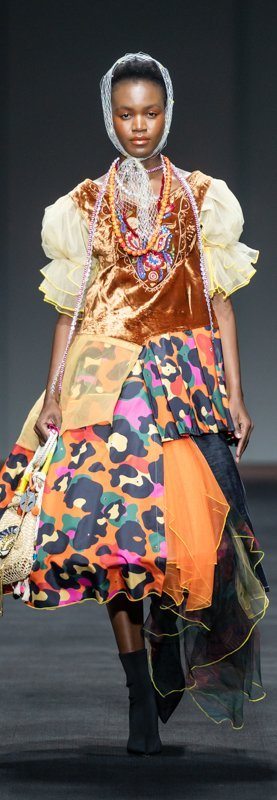
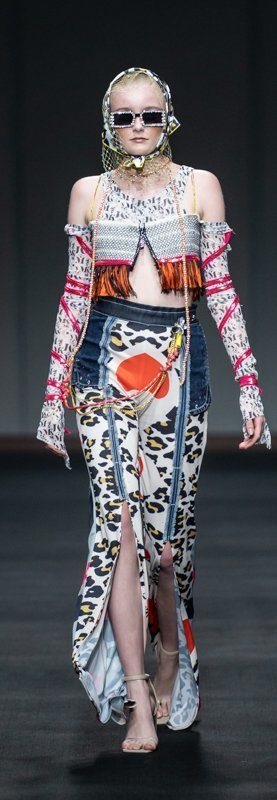
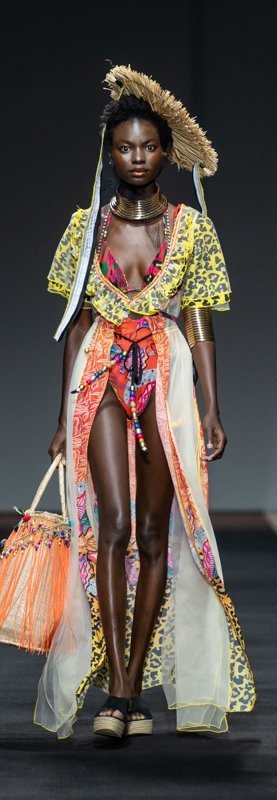
Fikile Zamagcino Sokhulu
“Feminine and organic aesthetics, that appeal to an ageless contemporary market, are associated with brand Fikile Zamagcino Sokhulu (FZS), a South African clothing brand based in Durban. Fikile Sokhulu studied at Durban University of Technology, receiving a National Diploma in Fashion Design. In 2018, her achievements as a student included showcasing, for the first time, at South African Fashion Week, and being part of the Cheers Qingdao Fashion Project in China. She was also a finalist in the 2018 South African Fashion Week New Talent Search. The brand collaborated with retailer, Mr Price, and created a fashion collection which launched at the beginning of 2020. In 2021, Fikile Sokhulu was one of four South African designers selected for the Fashion Bridges project sponsored by Camera Nazionalle della moda Italiana (Milan Fashion Week), Polimoda Firenze, Lineapelle Fair, South African Fashion Week, Mandela Forum, Italian trade agency and so many more.
Fikile Sokhulu’s SS22 showcase was astounding – with an impressive repertoire behind her already – the cross body patterns, execution of draped silhouettes and pops of lime green among the minimalist tones, we believe Fikile is one of the most critical designers in South Africa. The details of fabric manipulation such as pleating and tucking added rich texture to an already robust variation of garments.
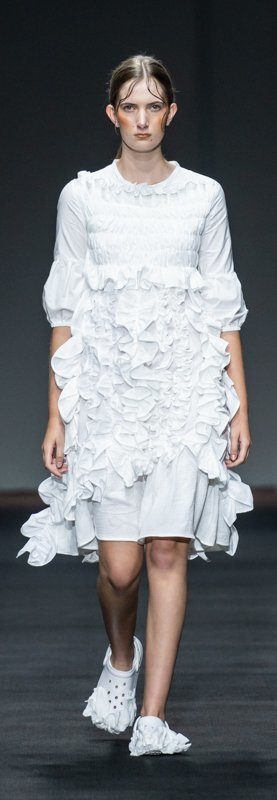
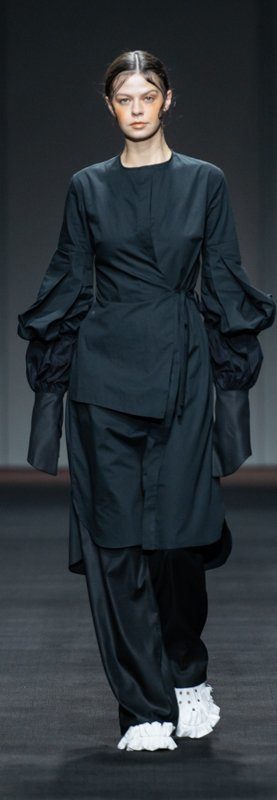
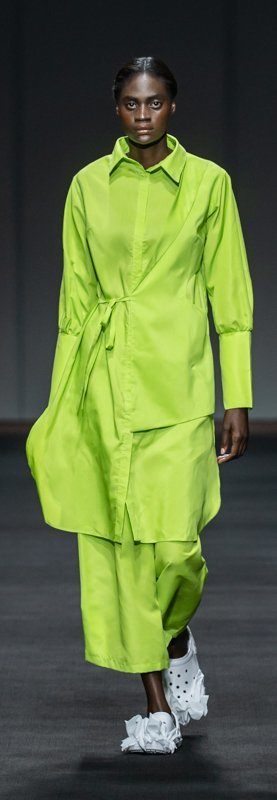
Day 2 ///
Artho Eksteen
Artho Helmuth Eksteen, graduated in 2018, with a BA Honours in Fashion from LISOF. As the Creative Director and owner of brand ARTHO EKSTEEN, Artho describes his brand’s design style as offbeat with artisanal influences and a maximalist approach. The brand’s style is heavily influenced by history, taking inspiration from fabrics used to create silhouettes. The ARTHO EKSTEEN brand focuses on slow fashion, utilising ethical fabric sourcing methods and garment production in order to help establish and preserve a healthy consumer culture, as well as ethical consumerism.
Artho Eksteen brought maximalism back to South African fashion week in a big way last year – and returned for SS22 with a kaleidoscopic array of pieces, perfectly juxtaposed together to create a psychedelic dreamscape that exist effortlessly for both the playful and serious nature of fashion expression. A magic mushroom knit? Yes please! We are delighted to witness his continuous growth.
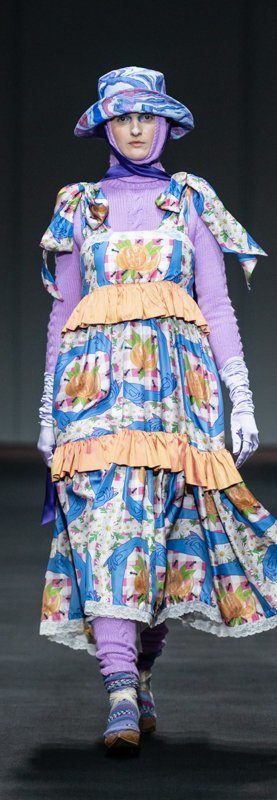
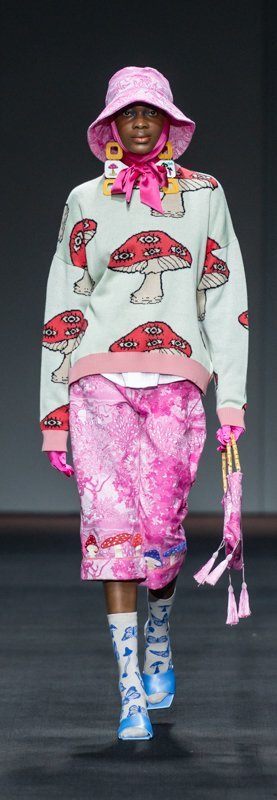
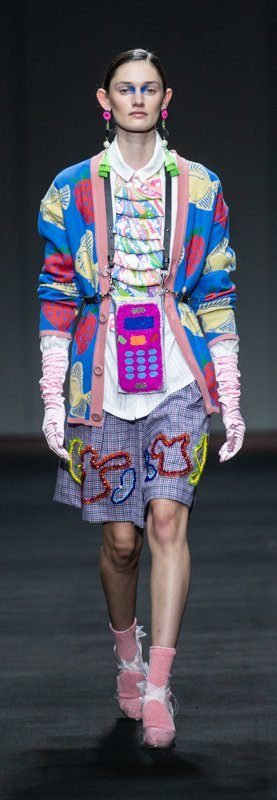
Amanda Laird Cherry
“Amanda Laird Cherry is a designer label that creates apparel with soul. With a focus on telling the stories behind clothing and culture, and a dedication to authentic, responsible production, they appeal to a range of customers. Their style language combines deep experience of the South African lifestyle and context with classic Asian influences, and they are known for their range of considered basics, separates and statement pieces. By taking familiar styles and silhouettes and updating them with unexpected and avant-garde twists, their garments are both wearable and distinctive.
Amanda was honoured at the World Fashion Awards in London in September 2020 and took home the Fashion Designer of the Year award. The business was also awarded the Changemaker Award at the inaugural Twyg Sustainable Fashion Awards in 2020 with the judges having taken their ethical labour practices, fabric choices, the extent of their upcycling policies and the reduction of waste throughout our garment manufacturing process into account.”
ALC is a South African design legend, providing both the accessibility and consistency that we have needed to make a fashion design pathway successful both creatively and in business. Playing with length and bold colour, Amanda is a master at offering her audience a vision that is both daring and familiar – a difficult feat to execute.
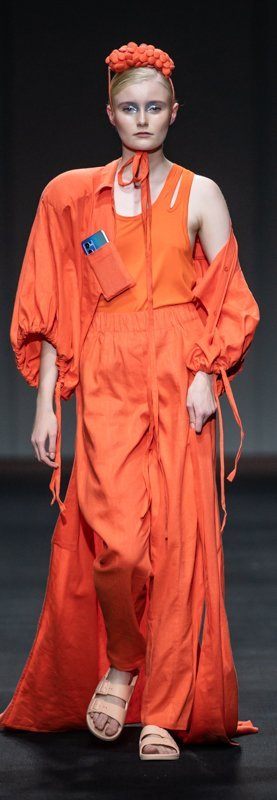
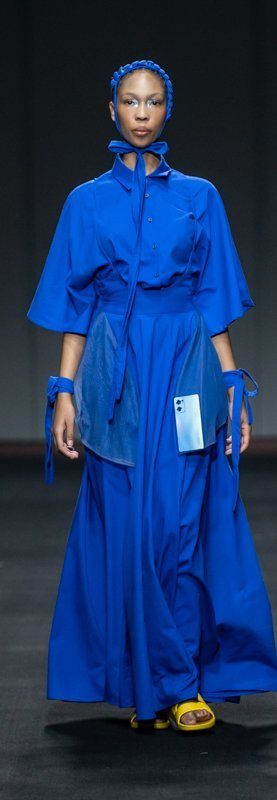
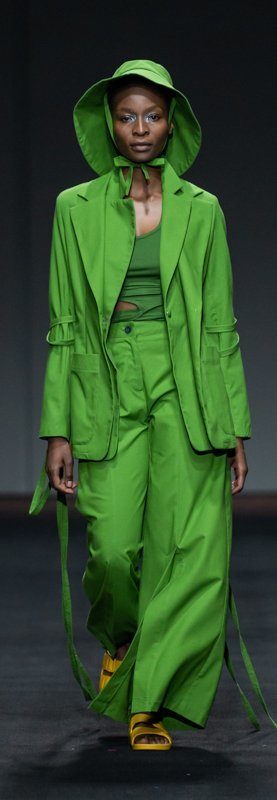
Helon Melon
“Founded by Helen Gibbs in 1995, Helon Melon was born out of an idea to service an industry that was limited in product design, style, fabric choice and innovation. In the early stages fabrics were easily sourced from local suppliers who understood the need to supply products that were manufactured from natural fibres and fabrics that had surface interest. The first few decades were very much dedicated to homeware and lifestyle design with an extremely happy diversion into apparel. Armed with an understanding of what it takes to succeed, Helon Melon has grown from being a local supplier to being sold in many countries including Italy, Germany, and England. Ted Baker is a great example of a brand that has used Helon Melon to manufacture products and Helon Melon has been sold in well-known stores like Selfridges and Beales of Manchester.”
Helon Melon’s SS22 showcase was centred around the art of quilting; specifically block quilting, creating a subtle reference to the trend we have seen of “puffed” textures extending beyond the standard jacket. Acid pink and navy created a fun contrast, and it’s wonderful to see an established, long standing designer contributing to the SAFW landscape.
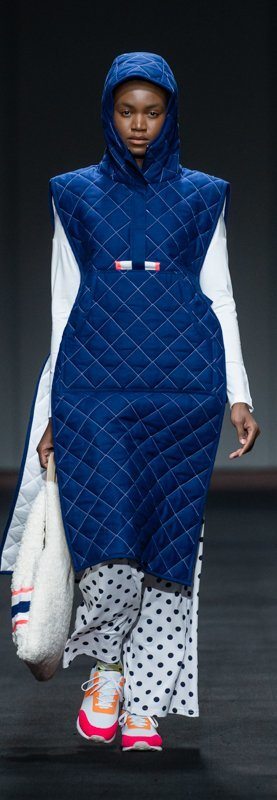
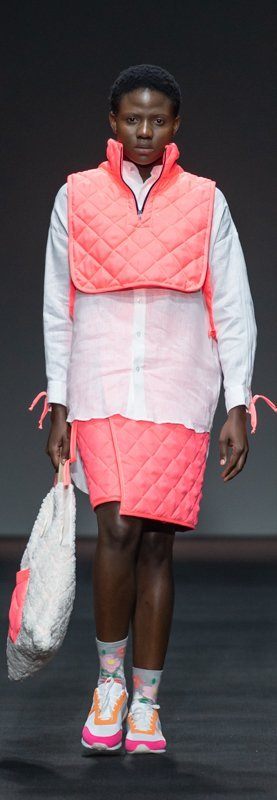
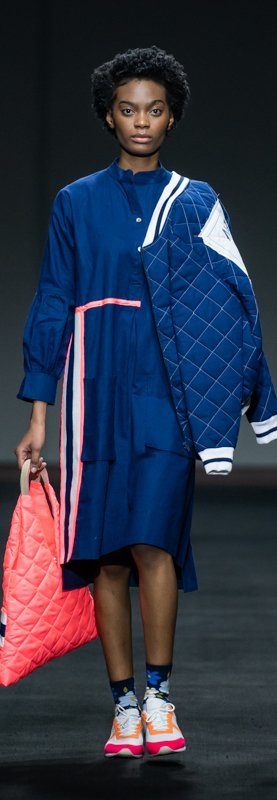
Day 3 ///
Ntando XV
“Ntando XV brand offers artisanal clothing, with unconventional design. Ntando Ngwenya, established his brand, Ntando XV, intending to target the high-end retail market, garment collectors and connoisseurs. Ntando, who began designing at an early age, likes to work with experimental cuts, pattern engineering, unusual intricate finishing, treated goods, and controlled fits.
Using both his professional experience and natural talents, Ntando Ngwenya has formulated a new genre in fashion, merging conservative and postmodern techniques to create a new representation for clothing. Using a syncopated technique in pattern engineering, by drafting intricate patterns, he introduces a new take on traditional methods by recreating popular styles in a contemporary light.”
Ntando XV placed their label firmly in the future; with a high-tech approach to their collection, the sense of performance wear that is refined and elegant stood out immensely. With the soft green, black and egg-white shades finished with waved piping – we loved the balanced clean lines with a subtle reference to organic shapes.
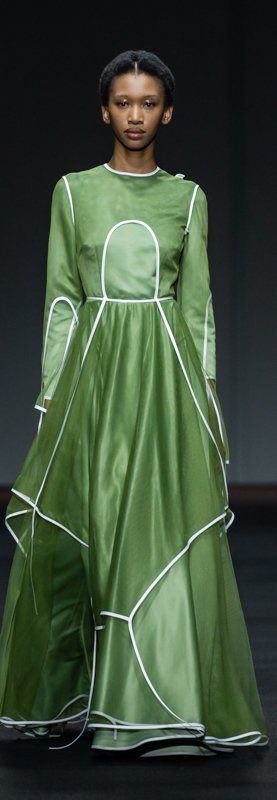
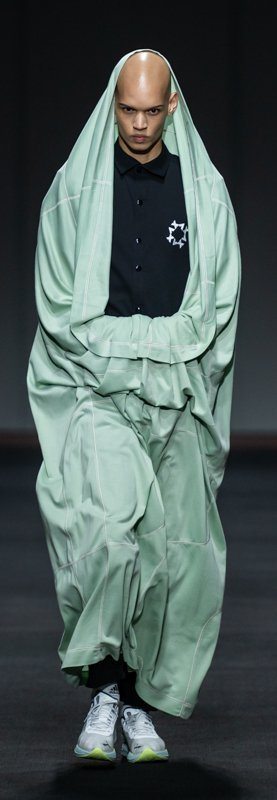
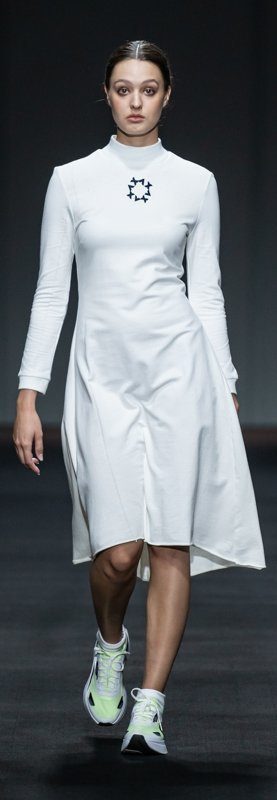
Francis Elis
“Cameroonian-born, naturalised South African citizen, fashion designer Fabrice Moyo is the director and founder of Franc Elis, which opened its doors in 2003. Known for its sophisticated and well-tailored garments and shirting, this season’s menswear collection, inspired by the French Military, depicts Franc Elis’ modern adaptation of variants of its service dress. It juxtaposes elements characteristic of turbulence against the calm of peaceful times. Strategic pockets, an important component of combat fashion, are added for their utilitarian nature, rather than aesthetic appeal. The brand operates from an 850 square metre studio combined with a factory floor with Fabrice being supported by 1 assistant and 15 permanent staff. Franc Elis has a retail store online.”
Fabrice Moyo’s strength of tailoring was very evident in his SS24 showcase – as is defined in his label’s philosophy, French uniforms of both workwear and service wear are functional and beautiful, an illuminating example of how elegance should exist with menswear.
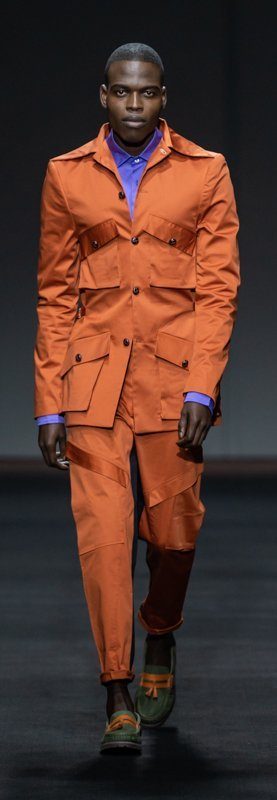
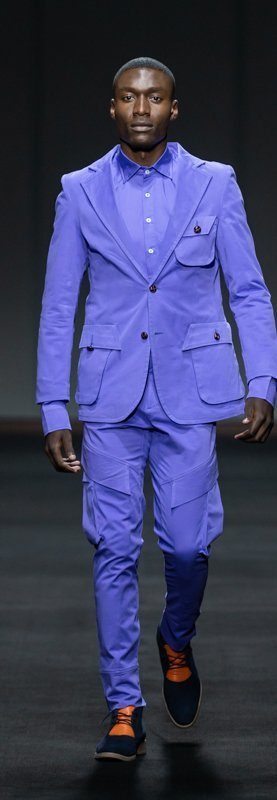
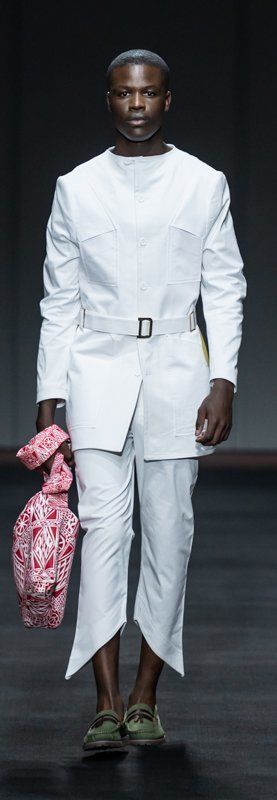
Loxion Kulca
The iconic and proudly South African brand was born in Johannesburg and since its entry into the market, has been the embodiment of popular culture with its trendy fashion. The term Loxion (lock-shin or location), used countrywide to describe townships, represents the African urban state of mind while nurturing Kulca (culture) – pride and successes of those who made freedom tangible. It draws its inspiration from authentic African principles of ‘ubuntu’, which govern the nature of their corporate partnerships. To adapt to this ever-evolving industry, the Loxion Kulca range offers leisure and streetwear, footwear, bags, underwear, and socks. Fulfilling the vision and dream of the late co-founder Mzwandile Nzimande, Loxion Kulca, today, is available at more than 1000 PEP retail stores across the country.
Loxion Kulca brightened Day 3 with brilliant neons and sporty cuts – a beautiful ode to Mzwandile Nzimande, who left his mark on South African streetwear. We are thrilled to see his legacy continued.
